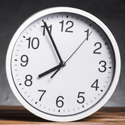Binocular Vision Exam
Are you or a loved one currently experiencing eye strain or headaches from computer use, reading, writing, or other near tasks?
When the cause is related to a binocular vision conditions, we are able to discuss and formulate a plan to improve the way your eyes work together. We can help patients with vision correction with eyewear, contact lenses and corrective surgery to help improve the way your eyes work together. Yet, corrective lenses or procedures to make vision more clear is not enough for some people. These people need help with how their eyes work together. Helping the eyes work together can be achieved through various and specialized techniques, training, and therapy.
Visual Skills and Visual Perception both need to present for a person to be able to have clear and comfortable vision while reading. These two major components help us to read and understand what we are reading.
During evaluations for binocular vision problems, we may look for the following Visual Skills:
- Eye Focusing Skills (Accommodation): we look to determine the strength, flexibility, and accuracy of the eye focusing system should be evaluated.
- 3D Vision/Depth Perception (Stereopsis): Lack in depth perception can result in a lack of 3D vision or headaches and eye strain during 3D movies.
- Fusion: this is the ability to use both eyes together. We determine if someone sees double or if the brain will adapt and suppress (or ignore) one of the eyes.
- Eye Movements (Ocular Motility): The way the eye moves is related to the connections in the brain and eye muscles. Eye movements can be used to determine the presence of central nervous system dysfunction like, tumors, inflammation, or neurologic conditions. Additionally, ocular motility testing allows our doctors to evaluate eye tracking skills that are used during reading.
- Resting Position (Ocular Posture): is examined to decide the presence or absence of strabismus (eye turn). Eye position is also related to headaches, eyestrain, fatigue, and diplopia (double vision).
- Presence of Conditions: amblyopia, strabismus, cataracts, glaucoma, and other diseases, as well as, diabetes, stroke, thyroid dysfunction, autism, and cerebral palsy may impact visual skills.
- Eye Teaming (Vergence): Shortages in eye teaming will result in double vision, eyestrain, fatigue, headaches, or dizziness.
- Visual Acuity: How clear your vision is. Without clear vision in each eye, your eyes may not work well together.
During binocular vision evaluations, we may look closely at the following aspects of Visual Perception:
- Processing Speed: how quickly you process visual information (such as reaction time during driving, sports, work or class assignments and homework).
- Spatial Awareness/Planning: ability to know your right from your left, navigate in a space and form correct letters and numbers.
- Visual Integration: the incorporation of your auditory and visual systems.
- Visual Perception: your ability to determine likeness, spatial relations, determining consistency, visual memory, visual sequential memory, figure-ground and visual closure. These skills are essential for academic success and learning.
- Working Memory: is essential for the achievement of new material and concepts. Shortfalls in working memory can result in challenges learning new concepts.
We have more than 40 years of experience in delivering the best binocular vision evaluations, training, and therapy possible. Our team relies on established therapy techniques and preventative care that makes a difference. We also make it easy and affordable to get the treatment and support you need.
Contact us today for your Binocular Vision Exam at River Lake Clinic in the greater Longfellow neighbor of Minneapolis. We proudly serve patients in the Twin Cities of Minneapolis and St. Paul, Minnesota, and surrounding communities.




